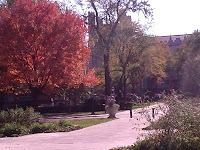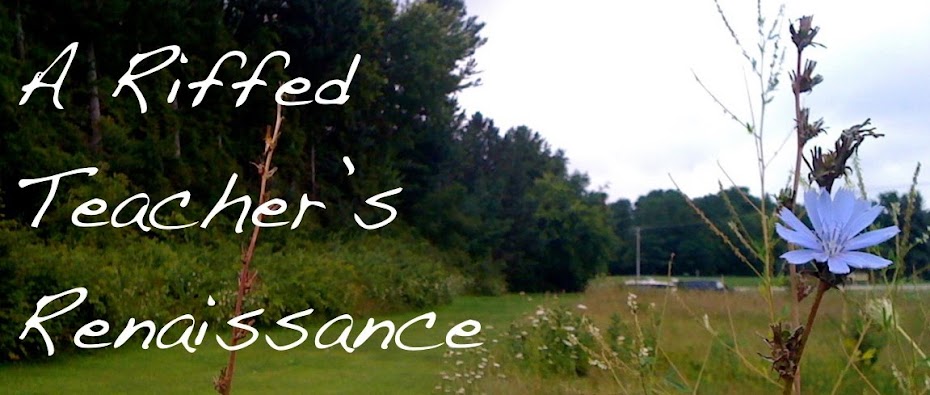“The only real education comes from what goes counter to you.”
André Gide (1869-1951)
From the time we were old enough to be dragged out of bed on a bright September morning and nudged out the door on the first day of school, we were told repeatedly that education is the key to our success. Whether we heard it from our mother while she insisted we finish our homework before going out to play, or from our teachers who encouraged us after we failed that lousy math test, or from clueless politicians on the campaign trail, who preached the need to educate every child so that none would be left behind, the message is the same: If we study, work hard, and go to school, we will find success.
As a child who was practically born with a book in her mouth, I hardly needed the nudge toward academics that some children do. I loved my teachers, and I wanted them to love me back. I was the student who raced home in feverish delight when I earned an A+ on a spelling test. I was the student who, when assigned a short story to write, drafted three versions and revised until I deemed it fit for sharing. Yes, I was often the teacher’s pet, but not because I sought special privileges. Rather, I really loved to learn, and I yearned to be in the presence of others like me.
Considering this early interest in academia, it seemed a natural progression for me to go to college to study literature and to become, big surprise, a teacher. I think I always knew that I planned on teaching high school, but only because my real love--writing--was just a pipe dream, something the F. Scott Fitzgeralds, J.D. Salingers, and T.S. Eliots of the world could do. First of all, my first name did not consist of initials; secondly, I could never write like they did. Real writers know from a very early age that they were put on this earth to write. Real writers don’t have to go to college to learn how to write; real writers learn through the practice of revision and by sharing their latest works with their fellow expatriates while drinking wine in a smokey Parisian café. Real writers were touched by the grace of God; I, on the other hand, was not.
That was the illusion I was under as I enrolled in an undergraduate program at a small catholic college in a swanky Chicago suburb. When I was asked by my counselor what course of study I’d like to follow, I immediately said, “Education.” I never expected to suffer a nervous breakdown of sorts during that first semester of college, but I did. All of a sudden I felt like I didn’t belong there, so I stopped attending classes, failed to withdraw by the official deadline, and then simply failed.
 Like all good things, that job came to an end when I was informed that “due to budgetary constraints” I would not be re-hired for the upcoming school year. I cried, I raged, and then I cried some more. I couldn't understand how I could find myself unemployed, uninsured, and completely uncertain of my future after I'd followed the rules and continued my education as our parents, teachers, and politicians told us to. My teacher friends assured me that once I had that expensive piece of paper in my hands, my résumé would be at the top of every school district’s list and that I would have no problem finding a teaching job. Last summer I was able to find one; this summer, there’s none to be found.
Like all good things, that job came to an end when I was informed that “due to budgetary constraints” I would not be re-hired for the upcoming school year. I cried, I raged, and then I cried some more. I couldn't understand how I could find myself unemployed, uninsured, and completely uncertain of my future after I'd followed the rules and continued my education as our parents, teachers, and politicians told us to. My teacher friends assured me that once I had that expensive piece of paper in my hands, my résumé would be at the top of every school district’s list and that I would have no problem finding a teaching job. Last summer I was able to find one; this summer, there’s none to be found.
Eventually I found my way back to that same school, dragging my tail between my legs, begging to be re-admitted. I was, and I graduated in the spring of 1996 with a B.A. in English Education. After that came eleven years of teaching high school, middle school, and junior high in various places around the city and suburbs. The time I spent at one particular school, which I will call Fallbrook, lies at the crux of that second questionable decision I alluded to previously. It was at this school that I worked with a student teacher whom I will call Jane. Jane quickly became a good friend because she was very supportive and actually wound up teaching me as much as I taught her. She was older than I was, but looked very young, a fact apparently not lost on our principal who the following year was seen on video tape engaging in sexual acts with Jane and other staff members on top of the desk in his office.
As absurd and disgusting as the whole thing was, I now question my ultimate decision to resign my position at Fallbrook to enroll in a full-time graduate school program. The program I selected would require me to quit my job because the courses I would be taking were offered at all hours of the day, so there would be no way for me to juggle both school and work.
I wrestled with the decision to leave a life of stability. I had been at that school for two years, and if I had remained there--if I had chosen a more “traditional” graduate school program like most teachers did--I would now be a tenured teacher at Fallbrook Elementary and I wouldn’t be sitting here at this laptop right now; rather, I’d be expounding on the virtues of good sentence structure while taking intermittent gulps from my bright red travel mug before a sea of sleepy, half-awake faces.
So did I do the right thing? I was accepted to an excellent school that was located in a beautiful neighborhood along Lake Michigan. My boyfriend and I took long walks around campus, watching the leaves on the plentiful trees change color, taking in the beauty of the campus architecture. I felt alive, engaged, and eventually, exhausted. But I was convinced at the time that my life would never be the same once that precious piece of paper was placed in my hot little hands; once I received that diploma, life would be sweet.
In the spring of 2008, I finally got my wish, earning my M.A. in the Humanities from The University of Chicago. I found another teaching gig at a school that was not exactly my dream job, but the salary was good, more than I’d ever made before. Consequently, I learned to live with the loud hallways, constantly cursing children, and mildly inadequate administrators. I learned to live with all of it because I was suddenly able to afford the things I’d always wanted to buy and do. Sounds totally shallow, doesn’t it? But all of the monetary bonuses aside, I also felt like I’d reached some of those kids, and that really was more important than the money.
 Like all good things, that job came to an end when I was informed that “due to budgetary constraints” I would not be re-hired for the upcoming school year. I cried, I raged, and then I cried some more. I couldn't understand how I could find myself unemployed, uninsured, and completely uncertain of my future after I'd followed the rules and continued my education as our parents, teachers, and politicians told us to. My teacher friends assured me that once I had that expensive piece of paper in my hands, my résumé would be at the top of every school district’s list and that I would have no problem finding a teaching job. Last summer I was able to find one; this summer, there’s none to be found.
Like all good things, that job came to an end when I was informed that “due to budgetary constraints” I would not be re-hired for the upcoming school year. I cried, I raged, and then I cried some more. I couldn't understand how I could find myself unemployed, uninsured, and completely uncertain of my future after I'd followed the rules and continued my education as our parents, teachers, and politicians told us to. My teacher friends assured me that once I had that expensive piece of paper in my hands, my résumé would be at the top of every school district’s list and that I would have no problem finding a teaching job. Last summer I was able to find one; this summer, there’s none to be found.So again I ask, was my foray into graduate school a wise decision in light of all that’s happened since? Am I really a master of humanity as it states boldly on the diploma that hangs over my desk? Am I really a master of anything?
I’m reminded of a quote from the poem “Invictus” by William Ernest Henley:
It matters not how strait the gate,
How charged with punishments the scroll,
I am the master of my fate;
I am the captain of my soul.
Perhaps I am a master of at least one thing.


